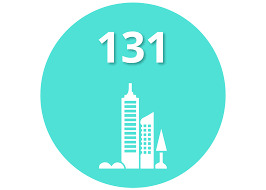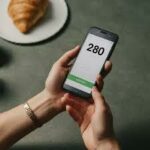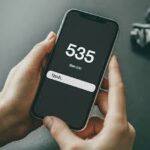The number 131 is not a valid area code or country code. It does not correspond to any real geographic location and is frequently associated with telephone scams, particularly those targeting voicemail systems and business phone lines.
If you have received a call from a number starting with 131 or have been instructed to dial it, it is crucial that you understand its status. This guide will explain why the 131 area code doesn’t exist and detail the security risks associated with it.

Why the 131 Area Code Doesn’t Exist
There are clear rules for how telephone numbers are structured, and “131” violates them in a North American context.
North American Numbering Plan (NANP) Rules
In the United States, Canada, and parts of the Caribbean, the NANP dictates that no area code can begin with a 0 or a 1. This rule is in place to prevent conflicts with operator-assisted calls (which start with 0) and the country code for the entire NANP region (+1). Therefore, a 131 area code is an impossibility within this system.
International Country Codes
The number +131 is also not an assigned international country code. The International Telecommunication Union (ITU) manages country codes, and 131 is not on the list of active codes.
The 131 Number and Common Phone Scams
Because it is an invalid and unassigned number, the 131 prefix is almost exclusively used by scammers to create confusion and exploit security vulnerabilities.
Voicemail Hacking and Toll Fraud
This is the most common scam associated with the 131 number. Scammers target business phone systems (PBXs) and sometimes individual voicemails that have weak or default passwords.
- They hack into the voicemail system.
- They change the settings to forward all calls to an expensive, international premium-rate number that they own.
- The number 131 is sometimes used as part of the fraudulent dialing sequence to route these calls.
The result is that the legitimate owner of the phone line is hit with a massive bill for thousands of dollars in fraudulent international calls.
“Call 131” Scam Messages
You may also receive a spam text, email, or see a pop-up on a website that creates a sense of urgency (e.g., “Your account is compromised, call 131-XXX-XXXX immediately!”). This is a trick to get you to willingly dial a premium-rate number that will charge you exorbitant fees per minute.
What to Do If You See the 131 Number
If you encounter the 131 number in any context, your default action should be to treat it as a threat.
- Do not call any number that begins with a 131 prefix.
- Do not respond to any text message or email that instructs you to dial this number.
- Secure your voicemail with a strong, non-obvious PIN. Avoid using 1234 or the last four digits of your phone number.
- Block any calls that appear on your caller ID with a 131 prefix, as they are guaranteed to be spoofed.
Frequently Asked Questions
Is the 131 area code the same as the +31 country code?
No. This is a very important distinction. +31 is the legitimate country code for the Netherlands. A call from a number starting with +31 is a real international call from that country. The number 131 is an invalid code used in scams.
I see a missed call from a 131 number. Should I call back?
Absolutely not. This is almost certainly a spoofed number used by scammers in a “one-ring” scam attempt to get you to call back a premium-rate line. Block and delete the number from your call log.
Can I get a 131 phone number?
No. Because it is not a valid area code within the North American Numbering Plan, no carrier can assign a phone number with this prefix.
Why is 131 used in scams?
Scammers use invalid or unusual numbers to create confusion, bypass simple call-blocking lists, and exploit vulnerabilities in older or poorly secured phone systems that might not recognize the prefix as invalid.
Conclusion
In summary, the 131 area code does not exist. It is an invalid number that is frequently leveraged by scammers for fraudulent activities like voicemail hacking and toll fraud. Never call a number beginning with 131, and ensure your own voicemail and phone systems are secured with strong passwords. Do not confuse this invalid code with the legitimate +31 country code for the Netherlands.


